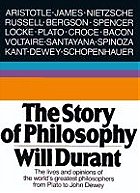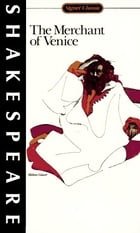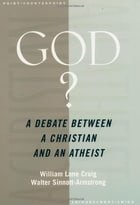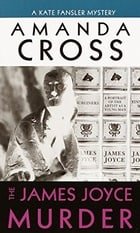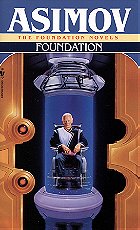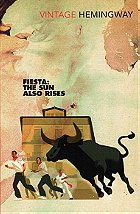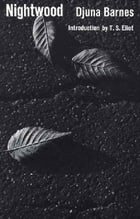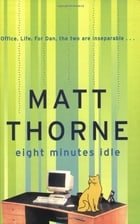Posted : 17 years, 6 months ago on 30 December 2007 01:56
(A review of
In T. S. Eliot's introduction for Nightwood, he writes that he does not want to suggest "the distinction of the book is primarily verbal, and still less that the astonishing language covers a vacuity of content." However, the indication is there (Eliot gives an somewhat ambivalent review) and, for me, first summed up what this book was like. When I put down Nightwood by the end of it, the only feeling I had for this book was simply an emphatic "WTF?" It's the strangest book I've ever read, and it's got the most WTF ending that I've every come across. I was going to call this book a beautifully written piece of bullshit in this review and be done with it. However, after we discussed it in class (I read it for American Lit), I realized I didn't give it enough credit. It is one of those rare cases in which one appreciates the book more after studying it. It's partly due to the writer's use of language and her style of writing. Barnes's writing is hard to swallow at first. Her use of "passive narrative voice" makes it really hard for the reader to get into the story. For example, everything and everyone is passively described and observed in the book, like a tableau. There is no dramatic moments; in fact there is no 'present' moments. Everything is described as if it has happened rather than it is happening. This method creates a distance between the reader and the story, and thus makes it hard to relate to anything in the book. It also doesn't follow a linear storyline that come to a climax and down; instead, it presents a montage of characters and events that string loosely together but never quite connect.
The beginning of the book was enough to awe me with its unique style and stunning language:
What had formed Felix form the date of his birth to his coming to thirty was unknown to the world, for the step of the wandering Jew is in every son. No matter where and when you meet him you feel that he has come form some place - no matter form what place he has come - some country that he as devoured rather than resided in, some secret land that he has been nourished on but cannot inherit, for the Jew seems to be everywhere from nowhere. (7)
Set in Paris in early 1920's, Nightwood is a modernist view of the world in which every one is "the wandering Jew." The Jew represents a generation of expatriates in the post-WWI world in which dislocation of people and dissolution of conventional values have installed doubts and confusion into the lives of individuals. Barnes's characters are the epitomes of ambiguity and ambivalence, and they, as well as her writing, reflect a strange kind of confusion, a mixing-up of reality and fantasy, of delusion and disillusion.
The plot is strange, if there is a plot at all. There is no character development and the narrative focus shifts from person to person. Luckily there are only about 5 main characters in the entire book: Felix, the Jew who is fascinated with history, the lesbians Nora and Jenny, who along with Felix, are obsessed about Robin, and two of the strangest characters I've ever read in literature - O'Connor, the cross-dressing (and gay) doc who goes on soliloquizing whenever he pops up in the book, and Robin, the woman who... well, I don't know who the heck she is. She is the most disturbing character in the book because she is like this spirit floating around without any emotion or even a will. She goes from place to place and person to person as if she is a fallen leave floating along on a river without any sense of direction or desire to settle down. She is the ultimate wanderer. She never speaks or acts (she is always spoken of or acted upon), and yet she is the most prominent presence in the book. She's got people chasing after her, talking about her and trying to keep her to themselves, but they can never obtain her. I have to admit I didn't get this character at all when I was reading the book, and I'm still not too sure what she is about (desire, ideal, fantasy, radical possibility of change?). There is more than one interpretation for this character, which some might argue is what makes her and the book interesting.
Besides the strange characters and stranger monologues, Nightwood is full of rich metaphors and symbols. It's hard to swallow and I know some people would just absolutely hate this kind of writing. I'm not a big fan of pretentious writing that tries to exhaust every symbol under the sun, but Nightwood is more than just "astonishing language" and "a vacuity of content." The writing fits the theme, and it depicts the modernist movement in the early 20th century in an interesting way. Once I realized that the writer wrote the book in such a manner for a specific purpose, I liked it better. Nightwood is a book about the alienation of individuals after the war and their struggle to re-establish a sense of self amid their search for the alternatives in a world where conventions and tradition don't hold up anymore. The new form of writing is supposed to create a new way of thinking about gender roles, religion, history, and most everything else. Nightwood is not perfect, especially when the writer indulges too much in writing sentences that sound nice but mean nothing much. However, I can safely say now that I think it's a book worth reading and studying.
 Login
Login
 Home
Home 20 Lists
20 Lists 63 Reviews
63 Reviews Collections
Collections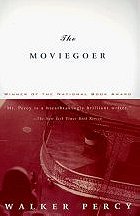
 0 comments,
0 comments, 